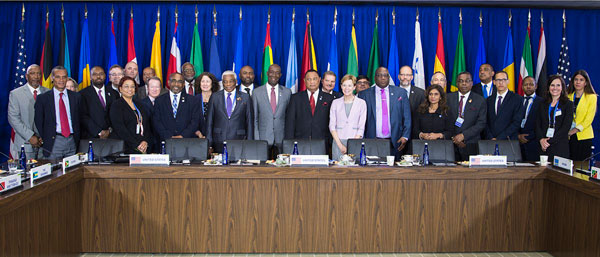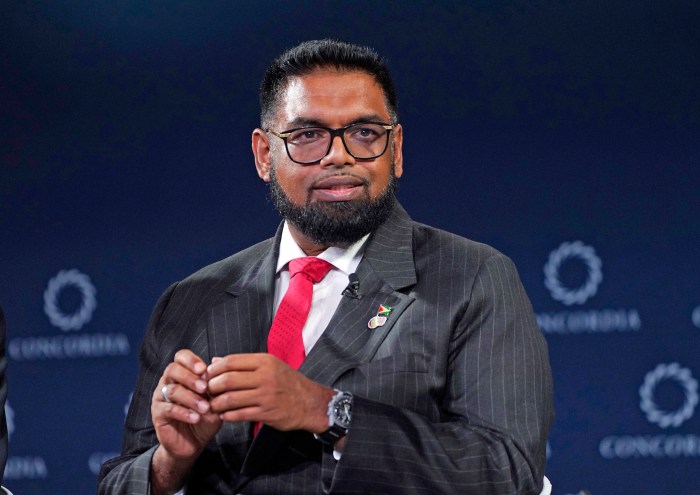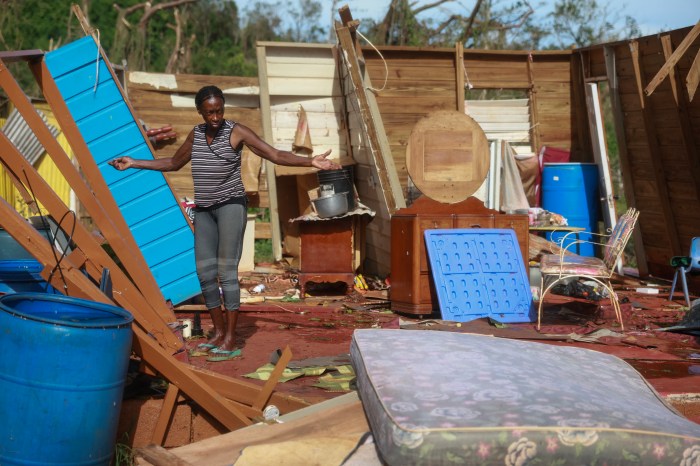Prime Minister of St. Kitts and Nevis, Dr. Timothy Harris championed CARICOM’s case on correspondent banking during an important consultation in Washington, D.C., with State and Treasury officials at the U.S. Department of State on Tuesday, May 3.
The prime minister led a delegation comprised of representatives from the Bahamas, Barbados, Dominica, Grenada, Guyana, Jamaica, St. Kitts and Nevis, St. Lucia, Suriname, and Trinidad and Tobago. Justin Hawley, counselor at the St. Kitts and Nevis Embassy to the United States of America, accompanied the prime minister.
Harris outlined the challenges confronted by Caribbean countries as a result of de-risking. De-risking is the practice whereby several major banks have either terminated their correspondent banking relationships with banks in the Caribbean or threatened to discontinue them. According to the International Monetary Fund, as of June 2015, at least 10 banks in the region in five countries have lost all or some of their correspondent banking relationships.
Hawley gave a report of the consultation which took place at the U.S. State Department. “The honourable prime minister expressed his concern that the stringent regulatory requirements that have been placed on national banks have begun to adversely affect the financial sector, leading to a negative perception of Caribbean banking on a whole. He reassured the U.S. representatives that St. Kitts and Nevis along with member states of CARICOM have established and implemented mechanisms to tackle the scourge of money laundering. Prime Minister Harris was applauded for his in-depth and thorough analysis of the plight of the commercial banking sector throughout CARICOM and the negative impact that these onerous regulations have placed on its respective economies,” Hawley said.
Representing the U.S. during Tuesday’s consultation were Daniel L. Glaser, assistant secretary for Terrorist Financing in the Office of Terrorism and Financial Intelligence at the U.S. Department of the Treasury, and Juan Sebastian Gonzalez, deputy assistant secretary of state for Western Hemisphere Affairs, with responsibility for U.S. diplomatic engagement and policy implementation in Central America and the Caribbean. Gonzalez was previously at the White House, most recently as special advisor to the U.S. Vice President from 2013 to 2015.
The consultation began at 3 pm on Tuesday; three hours prior to a reception that was also held at the State Department in honour of the delegations attending the U.S.-Caribbean-Central American Energy Summit. U.S. Vice President, Joseph R. Biden, Jr., hosted the Energy Summit on Tuesday, May 3 and Wednesday, May 4.
The Energy Summit forms part of the Caribbean Energy Security Initiative, which is coordinated by the U.S. Department of State and provides technical assistance for improved governance in the Caribbean energy sector. The Initiative was launched on June 19th, 2014.
On April 9, 2015, at the U.S.-CARICOM Summit in Jamaica, President Barack Obama announced the formation of an Energy Security Task Force aimed at evaluating the progress of the United States’ energy cooperation with the Caribbean and Central America.
The Report from the Task Force on U.S. Caribbean and Central American Energy Security was presented to country leaders at the Summit on Wednesday, May 4.























